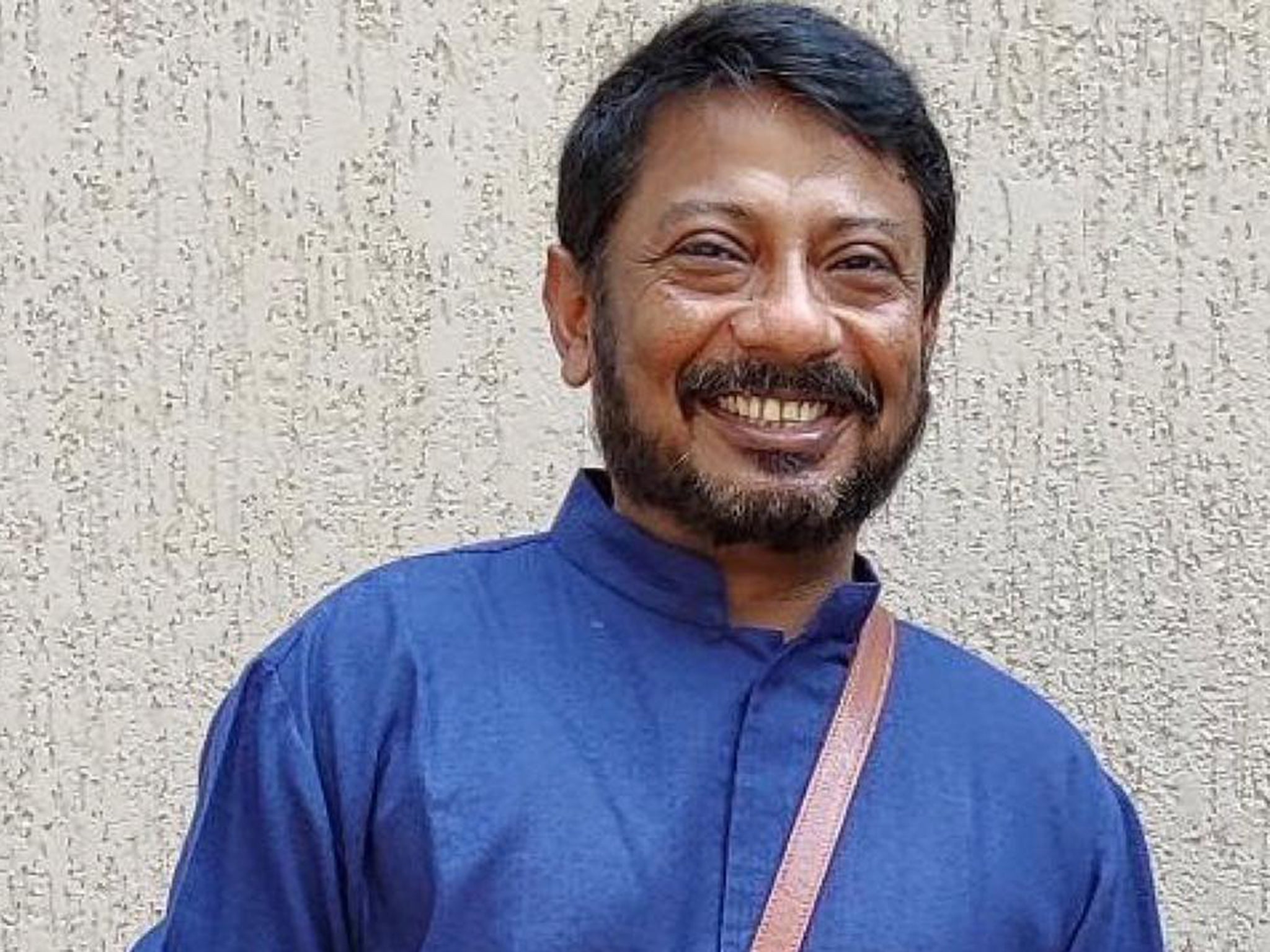Bollywood director Onir says Indian government blocked his film on gay soldier: ‘It’s worrisome’
Filmmaker’s script is inspired by the real-life story of gay retired army officer Major J Suresh

Indian director Onir has said the government’s decision to block his film about a gay army officer is “worrisome”.
On 21 January, it was reported that the Ministry of Defence had rejected the script of the filmmaker who is popularly known by his first name. The script titled We Are was allegedly rejected over the “illegal” depiction of a queer soldier, since members of the LGBTQI+ community cannot officially serve in India’s armed forces.
In July 2020, the Defence Ministry mandated that any television shows or movies that depict the armed forces must obtain a No Objection Certificate (NOC) from it. “Which itself is problematic,” Onir told The Independent, “because India has a film-certification board that should be doing this work.”
The gay love story is one of four queer romances that make up We Are, a sequel to Onir’s 2010 movie I Am. The forthcoming anthology film commemorates the Supreme Court’s 2018 historic verdict decriminalising homosexuality in India.
“I wanted to do something which celebrated it while also highlighting the way forward in terms of securing civil rights and changing societal perceptions [of the queer community]”, the “out and proud” filmmaker said.
The soldier’s character is inspired allegedly by a retired Major’s experiences of serving in the Indian army as a gay man.
Published on NDTV in July 2020, Major J Suresh’s first-person account – titled “I Was An Officer In The Indian Army, I’m Gay And Very Proud” – details the struggles he encountered while “reconciling the military/ex-military part and the gay part” of his identity.
“I thought this was an interesting premise and I developed my own ...you know, fiction, but the story that I wrote was inspired by this [interview],” the 52-year-old filmmaker said.
“I wrote about a gay army man who falls in love, realises he can’t express his love openly while serving in the army, quits, and finally reaches out to his lover. I don’t even get into any discourse of whether it’s right or wrong,” he said.

Watch Apple TV+ free for 7 days
New subscribers only. £8.99/mo. after free trial. Plan auto-renews until cancelled

Watch Apple TV+ free for 7 days
New subscribers only. £8.99/mo. after free trial. Plan auto-renews until cancelled
Onir failed to secure a No Objection Certificate from the ministry.
The email he received from the government was very short, he said, reading its contents during the interview with The Independent.
It allegedly read: “The contents of the script received have been analysed and we regret to inform you that it hasn’t been cleared.”
During a follow-up telephonic conversation, the filmmaker was told the ministry were unable to specify exact changes to Onir’s script, but that it was rejected because portraying a queer army officer is “illegal”.
The Independent has reached out to the Defence Ministry for comment.
In recent years, there have been a growing number of instances of film producers, streaming services, and Bollywood actors being restricted from releasing allegedly offensive content by non-film players, citing hurt religious sentiments, obscenity, or – as in Onir’s case – the inclusion of “illegal” characters.
“It’s not just the Indian army,” the director pointed out, highlighting the Amazon Prime Video film Tandav whose makers ran into serious legal trouble with various religious communities last year.
Police complaints were filed against Tandav’s director, actors and Amazon India’s head of content in four separate Indian states, alleging the adverse portrayal of the country’s prime minister, and inappropriate depictions of police personnel, and deities.
In a verdict that was eventually overturned, the Supreme Court refused to grant these persons interim protection from arrest, noting that the “right to freedom of speech is not absolute.”
There has been a marked culture shift in the country, according to Onir, with greater clampdowns on creativity.
His 2005 film My Brother… Nikhil followed the trials and tribulations of state-level swimmer Nikhil Kapoor (played by Sanjay Suri) after being diagnosed with HIV/AIDS in India at a time when AIDS awareness was tragically low. Not only was the movie released in India when homosexuality was still considered a criminal act, it garnered widespread, international interest and critical appreciation as well.
The prequel to We Are — which includes the traumatic depiction of a police officer sexually assaulting a gay man — was released eight years before the Supreme Court delivered its judgement striking down Section 377 of the Indian Penal Code. Onir won the National Award for I Am in 2011.
“Ironically, I could make those [movies] then but not anymore,” Onir said. “We’ve adopted sanitised versions of everything, dictated primarily by very lame, patriarchal, upper class notions. It’s very sad and worrisome.”
Onir didn’t know about the Defence Ministry’s directive when he began working on We Are but, he said, it wouldn’t have impacted his script either way. Committed to telling this story, the director is planning to appeal the ministry’s decision in an open letter, hoping that “everyone sees reason because I’m not even being able to have a dialogue” right now.
If that fails, he will have to follow in the footsteps of Iranian filmmakers who have perfected the art of delivering subtle social commentary through seemingly innocuous and non-combative cinema.
“When you are told that you can’t do [something], you camouflage and find a way to tell your story. And that’s what I will do – I will tell my story.”
If you have been raped or sexually assaulted, you can contact your nearest Rape Crisis organisation for specialist, independent and confidential support. For more information, visit their website here.
Subscribe to Independent Premium to bookmark this article
Want to bookmark your favourite articles and stories to read or reference later? Start your Independent Premium subscription today.

Join our commenting forum
Join thought-provoking conversations, follow other Independent readers and see their replies